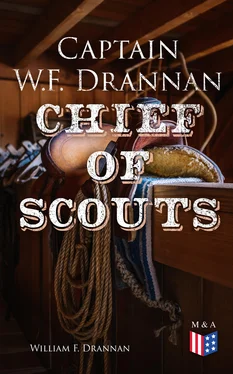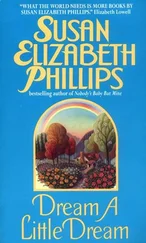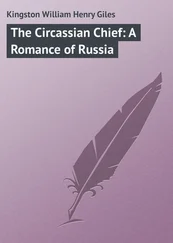William F. Drannan - Captain W.F. Drannan – Chief of Scouts
Здесь есть возможность читать онлайн «William F. Drannan - Captain W.F. Drannan – Chief of Scouts» — ознакомительный отрывок электронной книги совершенно бесплатно, а после прочтения отрывка купить полную версию. В некоторых случаях можно слушать аудио, скачать через торрент в формате fb2 и присутствует краткое содержание. Жанр: unrecognised, на английском языке. Описание произведения, (предисловие) а так же отзывы посетителей доступны на портале библиотеки ЛибКат.
- Название:Captain W.F. Drannan – Chief of Scouts
- Автор:
- Жанр:
- Год:неизвестен
- ISBN:нет данных
- Рейтинг книги:4 / 5. Голосов: 1
-
Избранное:Добавить в избранное
- Отзывы:
-
Ваша оценка:
- 80
- 1
- 2
- 3
- 4
- 5
Captain W.F. Drannan – Chief of Scouts: краткое содержание, описание и аннотация
Предлагаем к чтению аннотацию, описание, краткое содержание или предисловие (зависит от того, что написал сам автор книги «Captain W.F. Drannan – Chief of Scouts»). Если вы не нашли необходимую информацию о книге — напишите в комментариях, мы постараемся отыскать её.
Captain W.F. Drannan – Chief of Scouts — читать онлайн ознакомительный отрывок
Ниже представлен текст книги, разбитый по страницам. Система сохранения места последней прочитанной страницы, позволяет с удобством читать онлайн бесплатно книгу «Captain W.F. Drannan – Chief of Scouts», без необходимости каждый раз заново искать на чём Вы остановились. Поставьте закладку, и сможете в любой момент перейти на страницу, на которой закончили чтение.
Интервал:
Закладка:
We dismounted and walked up near them, and by the looks of the ground which was torn and tramped for quite a distance we decided that they had been in that condition quite a while. Jim said, "How in the plague, Will, are we going to get these critters apart? They are too plaguey poor to eat, so we don't want to kill them, and they will die if we leave them in this fix; what shall we do, Will?"
I thought a minute and said, "Can't we take our little ax and chop one of their horns off?"
He said, "I hadn't thought of that, but bring me the ax and I will try it."
I ran to the pack horse and got the ax. He said, "Now you go back to the horses; for if I get them loose they may want to fight us."
So I went to the horses and looked back to see what Jim was doing. He went up to them with the ax drawn ready to strike but it was quite a bit before they were quiet enough for him to get a good hit at them. At last he made a strike and down went one of the deer. Instead of striking the deer's horn he struck him right back of the horn and killed him instantly; when Jim saw what he had done he made another hit at the dead buck's horn and freed the live one, which ran thirty or forty yards and stopped and turned around and shook his head at us a half a dozen times and then he trotted away as if nothing had happened.
Jim laughed and said, "He never stopped to thank us, did he? Well he ain't much different from some people." I said, "Why, Jim he meant "thank you" when he shook his head at us; that is all the way he could say it, you know," to which he replied, "Well, I saved one of them any way."
Nothing occurred of interest from this time on until we reached our journey's end at Taos, New Mexico. Here we found Uncle Kit and his wife both enjoying good health and a warm welcome for his boy Willie, and his old friend Jim Bridger.
After supper that night we told Uncle Kit that we had traveled from the Sacramento river, California to Taos, New Mexico in thirty-three days, and that we never saw a hostile Indian on the trip, and neither had had any trouble of any kind to detain us a half an hour on the whole trip. He said, "That is a wonderful story to hear, when there are so many wild Indians in that part of the country. Now boys tell me what route you came."
We marked out the route by different streams and mountains. He looked at the map we had drawn and said, "I will venture to say there is not two men in all the country that could make that trip over that route and get through alive. I will say again, boys, it is some thing wonderful to think of, and you must have been protected by a higher power than your selves to get through in safety."
We staid with Uncle Kit a couple of weeks and rested up, and then we struck out for Bent's Fort to make up our crew to go to our trapping ground for our winter's work.
Uncle Kit accompanied us to Bent's Fort; and all the trappers were anxious to get in his employ from the fact that the report had gone out that the Sioux and the Utes were on the war path, and all the trappers knew that these two tribes were the strongest hostile tribes in the west, and when fifty miles from Bent's Fort we never knew that we were safe and the trappers all had confidence in Uncle Kit's judgment that he seldom made a mistake in locating his trapping ground, and further more he had more influence with the Indians than any other man in the country, so they worked rather for him than take chances with any one else.
The next morning after we reached Bent's Fort I heard Mr. Bent and Mr. Roubidoux talking with Carson in regard to the trappers. Mr. Bent said, "Carson, I wish you would take as many as you can handle, for they all have an Indian scare on them and are afraid to go out, and every one of them is indebted to us for board now; and we can not afford to support them if they loaf around here all winter," to which Carson replied, "I can handle five or six of them, and that is all I want, I can not afford to take men out in the mountains and board them all winter for nothing." After thinking a minute Carson asked, "How many of the men have their own traps and blankets?"
Mr. Roubidoux said, he thought nearly all of the trappers at the Fort had their own trapping outfits with them. Carson said he would think it over and see what he could do for them. That afternoon Carson and Bridger had a talk with regard to how many men they should take with them. Uncle Kit said, "We haven't horses enough to carry more than three or four besides us three." Bridger said, "That will not make any difference, if they want to go they can foot it from here to the head of South Platte as that's where we are going to trap this winter; and when they are through in the spring they can foot it back again. We have nine pack horses besides our saddle horses, and we can pack out to the trapping grounds, an outfit for five or six men besides our own all in good shape."
That afternoon Uncle Kit and Bridger made arrangements with six men to go with us to the head of South Platte to trap Beaver that winter. Carson and Bridger agreed to furnish them with flour, coffee, salt, and tobacco for which Carson and Bridger were to have half of the furs that each man caught, Carson and Bridger to pack the grub and every thing else out to the trapping ground and also to pack the furs and all their other things back to Bent's Fort in the Spring. After Carson and Bridger had selected the six men they wanted, it seemed as though all the trappers at the Fort wanted to go with them. Carson told them he had engaged all he could handle. The next two days we spent in getting ready to go to our trapping grounds. On the morning of the third day every thing in readiness we bid farewell to all the people at the Fort and struck out for the trapping grounds and our winter's work. The men that had to walk did not wait for us but started as soon as they had breakfast.
Uncle Kit told them where we would camp the first night. They got there before we did, and they had killed the fattest deer I ever saw and had killed a Cub Bear. They were skinning them when we got to camp. The deer was a spike buck and when he was skinned he was as white as a sheep from pure fat. The reader may be sure we were not long in unpacking and getting ready for supper; every one was tired and hungry for we had not had any thing to eat since morning. For my supper I roasted two of the cub's feet, and I have never enjoyed a meal since that tasted better. While we were eating Jim Bridger looked at me and said, "Will, you have the best of me tonight, but when we get to the Beaver grounds I'll have a Beaver's tail roasted for my supper and then I'll be even with you."
I never saw a band of men enjoy a meal more than those men did that night. In this climate people have better appetites than any climate I have ever been. I think the reason for this was the air was so pure and invigorating and it naturally required more food to sustain the body and keep it in good health, and at that time sickness was very rare in that part of the country. It would seem unreasonable to tell how much meat a man ate at one meal, especially when out on a trip like this when he was out in the open air all the time, night as well as day.
The third day after leaving this camp we struck the South Platte river, and now we had another change of meat, which was mountain sheep. This is in my opinion the best wild game that roams the forest.
We made an early camp that night and Uncle Kit said to Jim Bridger and me, "You two boys get the meat for supper and the rest of us will look after the horses." We picked up our guns and started up the river; we had not gone far when in looking up on a high bluff we saw a band of mountain sheep. Jim said, "Now if we can reach that little canyon," and he pointed to one just ahead of us, "without them fellows seeing us we will sure have something good for supper." This we succeeded in doing and then we crawled around until we were within fifty yards of our game. We selected a couple of spring lambs and fired and brought them both down. When the men at the camp heard the firing a couple of the men came running to help us bring our game to camp. We soon had it dressed and ready for cooking, and it was good and every one of the men ate as if they enjoyed it as much as I did. While we were eating supper Jim told us a story of his coming in contact with a panther that had just killed a sheep, and he said it was a miracle that it did not kill him. He was coming down a bluff on a little trail and as good luck had it he had his gun in his hand. The panther had the sheep behind a rock and as the panther sprang at him he fired and broke its neck.
Читать дальшеИнтервал:
Закладка:
Похожие книги на «Captain W.F. Drannan – Chief of Scouts»
Представляем Вашему вниманию похожие книги на «Captain W.F. Drannan – Chief of Scouts» списком для выбора. Мы отобрали схожую по названию и смыслу литературу в надежде предоставить читателям больше вариантов отыскать новые, интересные, ещё непрочитанные произведения.
Обсуждение, отзывы о книге «Captain W.F. Drannan – Chief of Scouts» и просто собственные мнения читателей. Оставьте ваши комментарии, напишите, что Вы думаете о произведении, его смысле или главных героях. Укажите что конкретно понравилось, а что нет, и почему Вы так считаете.












